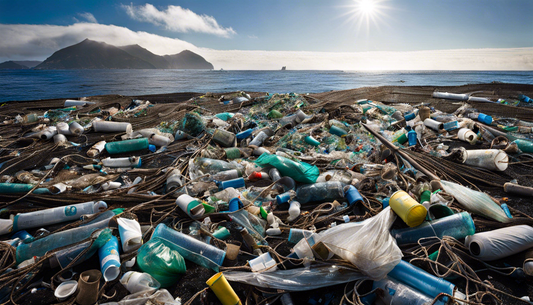Share
Nuclear Cost Assumptions: A Giant Leap of Faith:
Despite changing their stance on climate change, Australia's Coalition announced an anticipated nuclear plan that poses significant credibility challenges. The Coalition's assumptions surrounding cost estimates have been questioned, as have several unresolved matters. Issues have been broadly organized under the aspects of economics, the environment, and the law.
World Shift to Renewable Energy:
Although 9% of global energy capacity originates from nuclear power, renewables are gaining momentum. The International Energy Agency reported an installation of 560GW of new renewable power in 2023, compared to 7.1GW of new nuclear energy. As discussions at the COP29 focused mainly on speeding up the implementation of renewable energy, concerns have arisen about the Coalition's nuclear plans.
Comparing the Costs - Nuclear Vs. Renewable:
A primary reason for the global shift away from nuclear is the high cost. The Frontier Economics report, which is being used by the Coalition to push their case, states that the capital cost of nuclear is $10,000/kW, compared to solar and wind costs at $1,800 and $2,500, respectively. However, the Coalition suggests a cost-efficient world where nuclear makes up more than a third of the east coast energy grid. Skepticism arises from the basis for these calculations, which some argue are built on shaky assumptions.
Rose-Tinted Nuclear Plans:
The optimistic estimates of the Coalition's nuclear plans derive in part from a drastic reduction in future energy demands, nearly half of what the Australian Energy Market Operator predicted. Under their projection, the Coalition's plan would result in an increase in Australia's domestic emissions by approximately one billion tonnes, costing $240bn for the economy, society, and environment. This would set Australia back in terms of its climate commitments and potentially return the country to being a global climate pariah.
Conclusion: Doubting the Tilt Towards Nuclear:
The Coalition's climate and energy track record has always been weak. With this latest step supporting nuclear power, many argue that the Coalition's resilience on the climate, energy, and economy has further eroded.
Despite changing their stance on climate change, Australia's Coalition announced an anticipated nuclear plan that poses significant credibility challenges. The Coalition's assumptions surrounding cost estimates have been questioned, as have several unresolved matters. Issues have been broadly organized under the aspects of economics, the environment, and the law.
World Shift to Renewable Energy:
Although 9% of global energy capacity originates from nuclear power, renewables are gaining momentum. The International Energy Agency reported an installation of 560GW of new renewable power in 2023, compared to 7.1GW of new nuclear energy. As discussions at the COP29 focused mainly on speeding up the implementation of renewable energy, concerns have arisen about the Coalition's nuclear plans.
Comparing the Costs - Nuclear Vs. Renewable:
A primary reason for the global shift away from nuclear is the high cost. The Frontier Economics report, which is being used by the Coalition to push their case, states that the capital cost of nuclear is $10,000/kW, compared to solar and wind costs at $1,800 and $2,500, respectively. However, the Coalition suggests a cost-efficient world where nuclear makes up more than a third of the east coast energy grid. Skepticism arises from the basis for these calculations, which some argue are built on shaky assumptions.
Rose-Tinted Nuclear Plans:
The optimistic estimates of the Coalition's nuclear plans derive in part from a drastic reduction in future energy demands, nearly half of what the Australian Energy Market Operator predicted. Under their projection, the Coalition's plan would result in an increase in Australia's domestic emissions by approximately one billion tonnes, costing $240bn for the economy, society, and environment. This would set Australia back in terms of its climate commitments and potentially return the country to being a global climate pariah.
Conclusion: Doubting the Tilt Towards Nuclear:
The Coalition's climate and energy track record has always been weak. With this latest step supporting nuclear power, many argue that the Coalition's resilience on the climate, energy, and economy has further eroded.
We hope you enjoyed this article. Please feel free to leave a comment below if you want to engage in the discussion.
If you want to read more like this, make sure to check out our Blog and follow us on Instagram. If you are interested in truly sustainable products, check out our Shop.
Check out the original source here.








